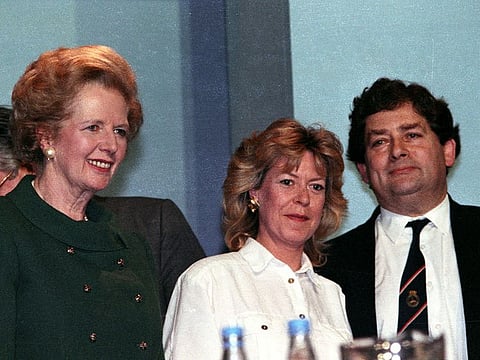Do intellectuals have a role to play in politics?
From Truman to Havel, history has shown that thinkers and can-do managers get things done

According to an authoritative study of American leaders by the psychologist Dean Keith Simonton, politicians with an impressive formal education fail overall to achieve the eminence of their less academic rivals. Maybe that’s why the Conservatives, dubbed “the stupid party” by 19th century philosopher (and Liberal MP) John Stuart Mill, have dominated British politics for over a century.
On meeting Franklin Delano Roosevelt soon after his inauguration in 1933, the Supreme Court Justice Oliver Wendell Holmes, no mean intellectual himself, took his measure: “A second-class intellect. But a first-class temperament.” In other words, FDR had the attributes of an ideal president. Some historians now claim Holmes made the observation of FDR’s distant cousin, the Republican Teddy Roosevelt, but the latter was a highly successful leader, too.
Also Read: BRICS: The Rise of a New Global Superpower?
Eggheads in politics are often regarded as impractical, low achievers. Adlai Stevenson, a two-time Democratic presidential candidate favoured by American intellectuals, was comfortably defeated by the inarticulate Dwight Eisenhower in the 1950s.
Princetonian President Woodrow Wilson made a hash of the peace settlement after World War I. School-leaver Harry Truman, however, constructed a new world order after 1945. In the UK, Winston Churchill struggled at school and had no university degree, and founding father of the welfare state David Lloyd George’s education was humble.
But the death this week of Margaret Thatcher’s chancellor of the exchequer, Nigel Lawson, reminds us that a fierce, goal-directed intellect has a place in politics, too.
Lawson was the driving mind behind Thatcher’s privatisation agenda — he implemented a successful tax simplification program and deregulated the City of London to let it compete with Wall Street on equal terms. Alongside his boss, Lawson was the architect of the modern British economy.
One could say Thatcher had a strong second-rate mind and first-rate temperament — at least for wielding power — and she possessed enormous courage to face down implacable foes at home and abroad. But she required ministers with independent minds like Lawson’s to implement her policies after decades of collectivist consensus.
Her brainy chancellor, a former business journalist and editor, understood political salesmanship, too. Post-Brexit Britain needs a similar helmsman.
Intellectual contribution to politics
Pragmatism and common sense are necessary to get business done, but without a sense of direction, politicians often tinker at the margins or spread their aims too thin. Prime Minister Rishi Sunak and Labour leader Keir Starmer are hard-working technocrats adept at problem-solving and are a great improvement on their predecessors, but both men have yet to show they have “the vision thing.”
Britain has been shaped by pragmatic politicians graced with intellect, even if they have not been “intellectuals” in the Continental sense of the word — that is, fearless critics of society who hold up a mirror to those in authority and must therefore be detached from practical day-to-day politics.
Vaclav Havel, the dissident Czech playwright persecuted by the Communist authorities, was one of the few intellectuals to transition to the summit of democratic politics.
In this post-pandemic, post-financial crash era, the future belongs to the politician who best understands the challenge of implementing ambitious net zero carbon emissions targets on practical lines that boost the economy.
In the current political environment, a natural activist like Heseltine would know how to shake off Whitehall’s lethargy, sweat contracts with private industry and galvanise the state.
But a latter-day Lawson would also be needed to keep an eye on the ballooning bills and allow private enterprise the freedom to flex its muscles.
For a while, Thatcher harnessed the talents of both men, while in the US, FDR and Truman hired deep thinkers and can-do managers to accomplish their goals. It’s a history lesson that would serve Britain’s leaders well to remember.
Bloomberg
Martin Ivens is the editor of the Times Literary Supplement
Sign up for the Daily Briefing
Get the latest news and updates straight to your inbox



